Slide 1
Project ECHO Integrated Seniors Care
All Teach, All Learn
Bridging the Knowledge Gap in Home and Primary Health Care


Through CHCA Project ECHO, we envision a future where all patients receive high-quality care, no matter where they live. Our innovative learning approach strengthens provider competencies by building essential skills, knowledge, and attitudes through education, best practices, and collaborative networks. Our goal is to improve care quality, strengthen clinical practice, support confidence and collaboration, and ultimately deliver better outcomes for patients and their families.
2025 Theme:
Join us for our new Project ECHO: Integrated Seniors Care series, focused on strengthening care for older adults living at home with cognitive impairment and multimorbidity. With 37% of Canadian seniors reporting two or more chronic conditions, and many also experiencing undiagnosed cognitive impairments, an interdisciplinary, team-based approach is essential. This TeleECHO series will feature expert-led presentations and dynamic panel discussions exploring practical strategies, clinical challenges, and collaborative solutions to support seniors with complex needs, including dementia, in home and primary care settings.
 |
These activities meet the certification criteria of the College of Family Physicians of Canada and the Quebec College of Family Physicians, a continuing professional development accrediting organization recognized by the Collège des médecins du Québec and have been approved for up to 8 Mainpro+® Certified Activity credits. |
 |
March 4, 2026 | 1–2pm Eastern (confirm time in local area)
Spiritual and cultural identity shape how individuals understand illness and make care decisions, yet are often overlooked. This TeleECHO Clinic introduces the FICA Spiritual History Tool to help care teams across home, community, and primary care settings integrate spiritual and cultural needs into planning, building trust and shared decision-making.
Subject Matter Expert
 Simon Lasair, PhD, CASC Certified Spiritual Care Practitioner
Simon Lasair, PhD, CASC Certified Spiritual Care Practitioner
Clinical Spiritual Care Practitioner, Lifebridge Health Centre, Saskatoon
Director, Certification & Educational Partnerships, Canadian Association for Spiritual Care
Panelists
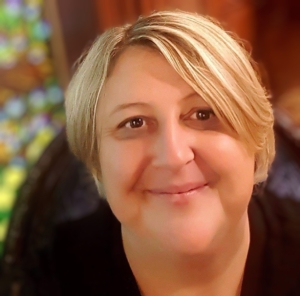 Cindy (Cynthia) Dwyer, MA, BCC
Cindy (Cynthia) Dwyer, MA, BCC
Lead, Spiritual Health, Grief & Bereavement Services
Saint Elizabeth Foundation

Carly McPhee, RN, MSc, CHPCN©
Advanced Practice Leader – Palliative Care
Professional Practice

Dr. Alexander Watts
1 Mainpro+® Certified Activity credit
*This session is offered in English, with multilingual captioning available.
April 1, 2026 | 12–1pm Eastern (confirm time in local area)
Caregivers often experience unseen stress that impacts both their wellbeing and care quality. This TeleECHO Clinic explores how teams across home, community, and primary care can identify and respond to caregiver needs using practical tools, early signs of burnout, and lived experience to inform supportive, realistic care planning in complex contexts.
Subject Matter Expert
 TBC
TBC
Panelists
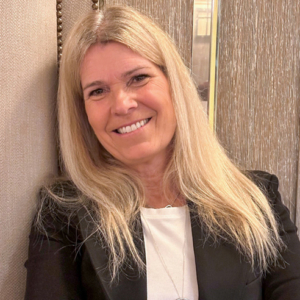 Claire Webster, PAC, CPCA
Claire Webster, PAC, CPCA
Founder and Ambassador, McGill Dementia Education Program
Founder and President, Caregiver Crosswalk Inc.
 TBC
TBC
1 Mainpro+® Certified Activity credit
*This session is offered in English, with multilingual captioning available.
April 29, 2026 | 12–1pm Eastern (confirm time in local area)
Integrated care for older adults with multimorbidity requires shared understanding across disciplines. This TeleECHO Clinic highlights how the Comprehensive Geriatric Assessment (CGA) can strengthen team-based planning by unifying physical, cognitive, emotional, and social assessments to guide collaborative care decisions across home, community, and primary care settings.
Subject Matter Expert
 Dr. George Heckman MD, FRCP(C),
Dr. George Heckman MD, FRCP(C),
Geriatrician, McMaster University 2000-2010. Schlegel Research Chair in Geriatric Medicine 2010 to 2024. Clinician Research, Lawson Research Institute and Western University 2024. Vice chair of the interRAI Instrument and Systems Development Committee.
Panelists
 TBC
TBC
 TBC
TBC
1 Mainpro+® Certified Activity credit
*This session is offered in English, with multilingual captioning available.
January 21, 2026
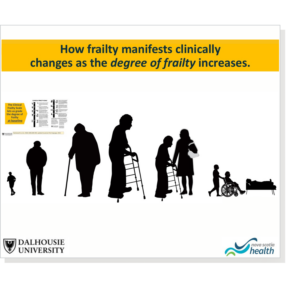
Dr. Kenneth Rockwood challenges clinicians to rethink frailty as more than a score, demonstrating how functional change and clinical judgment—supported by the Pictorial Fit Frail Scale – can sharpen assessment and care planning. Dr. Sabeen Ehsan builds on this foundation, showing how frailty pathways turn identification into action, enabling earlier intervention, clearer decision-making, and coordinated care across primary, home, community, and specialized services.
December 10, 2025
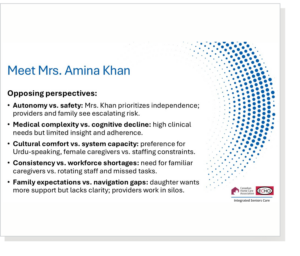
Dr. Kerry Bowman highlighted the need to balance autonomy, safety, and risk in community care, noting that individuals’ rights guide decision-making. He emphasized fluctuating capacity, cultural perspectives, and communication needs, encouraging clear assessment, open dialogue, and collaborative responses to complex situations that support client preferences and team safety. Olesya Kochetkova and Jean Johnston-McKitterick stressed respectful communication, documentation, family involvement, and coordinated supports.
December 3, 2025

Dr. John Hirdes highlighted how interRAI-HC data identifies risks, guides care planning, and tracks needs over time, using CAPs and predictive tools to strengthen integrated, person-centred, multidisciplinary care. Katarina Busija and Leslie Eckel emphasized that interRAI-HC and CAPs offer a shared language to identify risks, guide restorative interventions, address caregiver burden, and coordinate personalized, effective integrated care across settings.
November 26, 2025
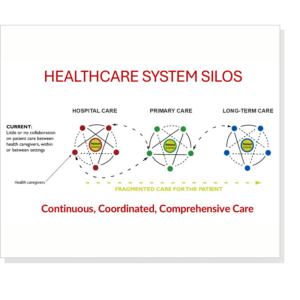
Dr. Ivy Oandasan highlighted systemic barriers—siloed care, limited primary care capacity, and weak interprofessional coordination—calling for integrated, team-based primary care grounded in the four C’s. Carin Ann MacInroy illustrated the human impact through her caregiver experience, revealing overwhelming cognitive load caused by fragmented systems. Amanda Garrets added to a panel discussion that emphasized proactive planning, clear accountability, shared information, and technology-enabled coordination to improve transitions.
October 1, 2025
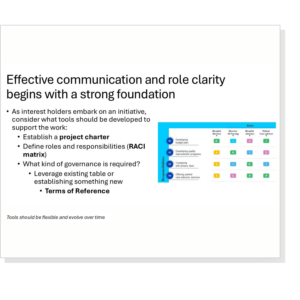
Madelaine Meehan shared lessons from Ontario’s primary care pathways, emphasizing collaboration, shared accountability, and direct communication. Judy Stewart and Karen Bell joined the case study discussion of how clear roles, cultural awareness, and caregiver support enhance coordination, reduce fragmentation, and improve outcomes for patients receiving home and community care.
June 25, 2025
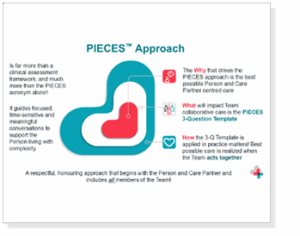
Kim Shryburt-Brown explained that responsive behaviours in dementia reflect unmet needs. She reviewed early warning signs, non-pharmacological interventions, and tools like the BSO-DOS and PIECES framework. The case study panel discussion with Claire Webster, Jillian McConnell and Ashley Lewis emphasized cultural competence, caregiver education, and proactive planning as essential for collaborative, person-centered dementia care and building trust.
June 9, 2025
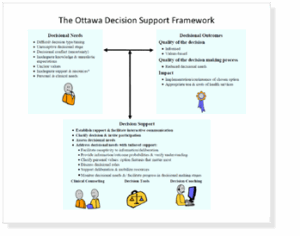
Dr. France Légaré shared research and tools to support shared decision-making in seniors’ care. Through a panel discussion, Dr. Yinka Akin-Deko, Tashani Parker, and Wendy Gairy explored a complex case, highlighting cultural values, cognitive decline, caregiver stress, and system gaps. The session emphasized collaboration, person-centred care, and respecting diverse perspectives in planning and delivering care for older adults
March 27 2025
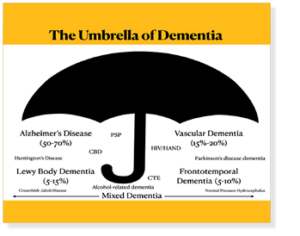
Dr. Robert Lam, MD, MS, CCFP, FCFP (Care of the Elderly), Staff Family Physician, Home-Based Primary Care Team, Unison Health & Community Services, provided practical strategies for identifying early dementia signs, using effective screening tools, communicating red flags, implementing care strategies, and approaches to delivering person-centred, non-pharmacologic and pharmacologic interventions.
Feb 12, 2025
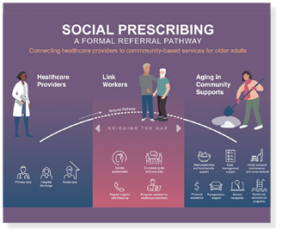
Krista Mulbery, Social Prescribing Project Manager, Edmonton Seniors Coordinating Council, Colleen Derksen, Social Work Manager, Sage Seniors Association, and Tatiana Kastner, Program Manager for Older Adult Services, Jewish Family Services Edmonton, discussed the profound impact of collaborative social prescribing and integrated health and community services on the well-being of seniors living with dementia.
TeleECHO Clinic
Expert Presentation Slides
Evidence-Based Resource
January 22, 2025
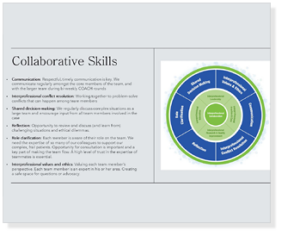
Tim Stultz, MD, Medical Director of the COACH Program, and Amy Garrett, Nurse Practitioner, Provincial Geriatric Program, Summerside, PEI, shared their expertise on improving care for older adults through COACH’s interdisciplinary collaboration, with a focus on essential skills, knowledge and attitudes.
TeleECHO Clinic
Expert Presentation Slides
Evidence-Based Resource
December 4, 2024
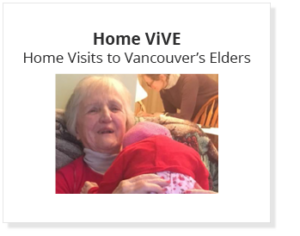
Dr. Judith Hammond, MD, Dr. Conrad Rusnak, MD, and Joti Bagri, RN of Vancouver’s Home ViVE program shared practical insights into team-based, interdisciplinary care highlighting the skills, knowledge and attitudes needed for an integrated approach to care.
TeleECHO Clinic
Expert Presentation Slides
Evidence-Based Resource
October 1, 2024
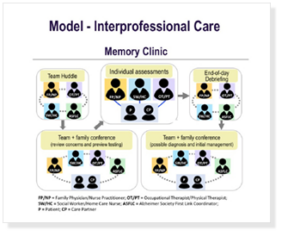 Dr. Andrew Kirk, MD, FRCPC, Professor and Head of Neurology at the University of Saskatchewan, and Jennifer Letkeman, BSW, RSW, Primary Health Care Facilitator at Weyburn Special Care Home, discussed the early identification and management of dementia, including recognizing risk factors, identifying early warning signs, and developing a collaborative approach to screening, diagnosis, and treatment.
Dr. Andrew Kirk, MD, FRCPC, Professor and Head of Neurology at the University of Saskatchewan, and Jennifer Letkeman, BSW, RSW, Primary Health Care Facilitator at Weyburn Special Care Home, discussed the early identification and management of dementia, including recognizing risk factors, identifying early warning signs, and developing a collaborative approach to screening, diagnosis, and treatment.
TeleECHO Clinic
Expert Presentation Slides
Evidence-Based Resource
The Project ECHO Home and Community Care Learning Hub offers a variety of resources for healthcare providers delivering home- and community-based care. Through the hub, you can access:
To access the Learning Hub: https://echo.cdnhomecare.ca/
Project ECHO Integrated Seniors Care is made possible through the support from the Canadian Medical Association in partnership with the Canadian Home Care Association.

The Palliative Care ECHO Project is supported by a financial contribution from Health Canada. The views expressed herein do not necessarily represent the views of Health Canada.
October 1, 2025 | 12–1pm Eastern (confirm time in local area)
Effective dementia and multimorbidity care requires clear roles and strong interprofessional communication. This teleECHO clinic explores strategies—shared care plans, digital tools, mutual respect—to enhance coordination, reduce duplication, and build trust. A panel discussion of the case study will highlight role clarity, shared planning, and accountability across home and primary care to improve person-centred, integrated team performance.
Subject Matter Expert (SME): TBD
Panelists: Judy Steward, Karen Bell
*This session is offered in English, with multilingual captioning available.
 |
This activity meets the certification criteria of the College of Family Physicians of Canada and the Quebec College of Family Physicians, a continuing professional development accrediting organization recognized by the Collège des médecins du Québec and has been approved for up to 8 Mainpro+® Certified Activity credits. |
 |
 |
This activity meets the certification criteria of the College of Family Physicians of Canada and the Quebec College of Family Physicians, a continuing professional development accrediting organization recognized by the Collège des médecins du Québec and has been approved for up to 8 Mainpro+® Certified Activity credits. |
 |
This post is also available in: French